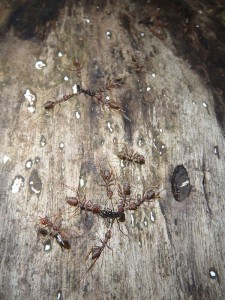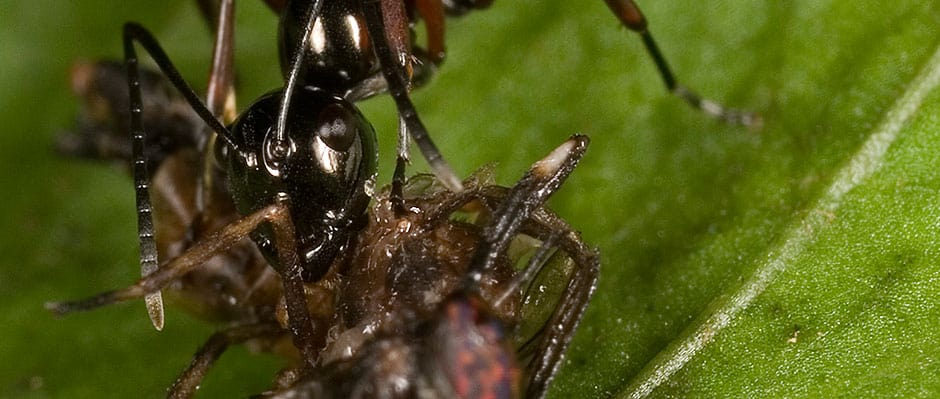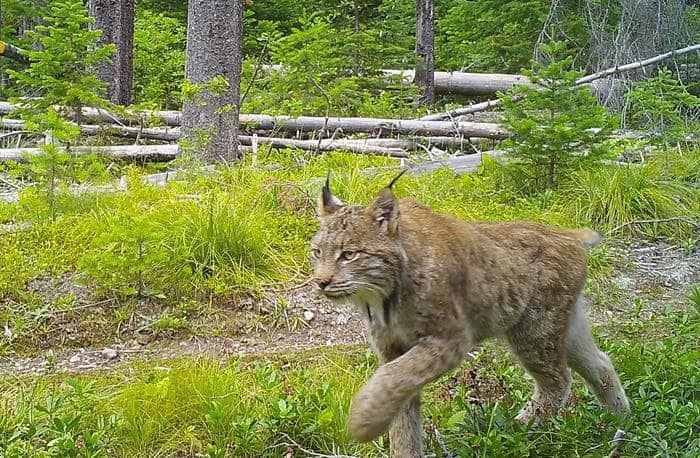Share this article
Ecosystems Resilient After Logging but Still Vulnerable
Logging could push invertebrates like ants and other animals out of rainforest dominance, according to a new study.
“Invertebrates are often thought of as the controllers of tropical forests, so it’s surprising that people can upset their dominance to this level,” said Robert Ewers in a release. Ewers works with the Department of Life Sciences at Imperial College London and is the lead author of the study that was published in Nature Communications this week.
Invertebrate species like ants and millipedes provide important services to the operation and life cycle of ecosystems, aiding with the breaking down of dead plant material while other larger invertebrates like spiders control the populations of these smaller creatures. But when the trees are removed, they often disrupt this balance and push out many of the invertebrate species.

Carnivorous ants help keep herbivorous invertebrate numbers down. When logging occurs, many ants like these disappear and the job is picked up by small mammals and other vertebrates.
Image Credit: Rob Ewers
As some invertebrate species are pushed out of ecosystems, others often move in to balance out the ecosystem equation — including small mammals, amphibians and other vertebrates.
While Ewers said this is good news and is a sign of ecosystem resilience, rainforests become more vulnerable as important elements that perform specific tasks in regeneration are removed. “The forest will keep maintaining itself, but it will be much more susceptible to further change. Relying on vertebrates is a bad tactic — they are less diverse and vulnerable to new challenges such as land use change.”
Ewers and his team conducted these tests by excluding certain creatures from different parts of natural and logged rainforests in Borneo in an effort to determine their place in ecosystems. They found that ecosystem activities like plant decomposition and seed disturbance was carried out at roughly the same speed in the logged forests even though invertebrates had less of a hand in operations. Vertebrates often spread more of the seeds while researchers theorized that soil bacteria may have picked up the slack with decomposing dead plant matter.
The amount of vertebrates killed by predators also remained the same in logged areas and rainforests. But whereas in regular rainforest settings, other invertebrates were responsible for nearly all of this predation, they only accounted for 60 percent in logged areas.
Ewers said that these subtle changes could make ecosystems more fragile when rainforest is cleared to make space for palm tree plantations. “Knocking out one or two invertebrates might not be too bad, as there are many others to take their place, but knocking out one or two vertebrates could now be disastrous,” he said.
Header Image:
This is a Polyrhachis sp ant with prey. Ants like this keep invertebrate numbers down, but in logged areas many of these invertebrates lose their dominance.
Image Credit: Tom Fayle








